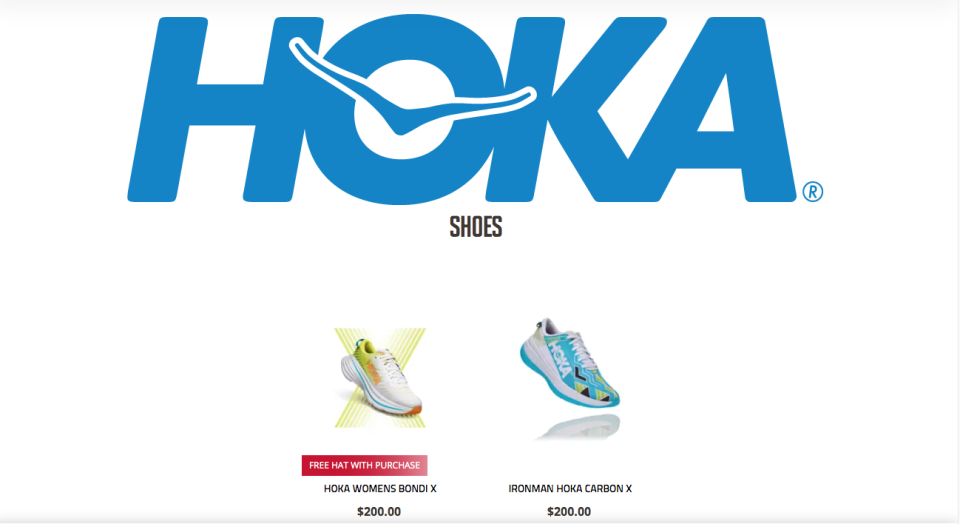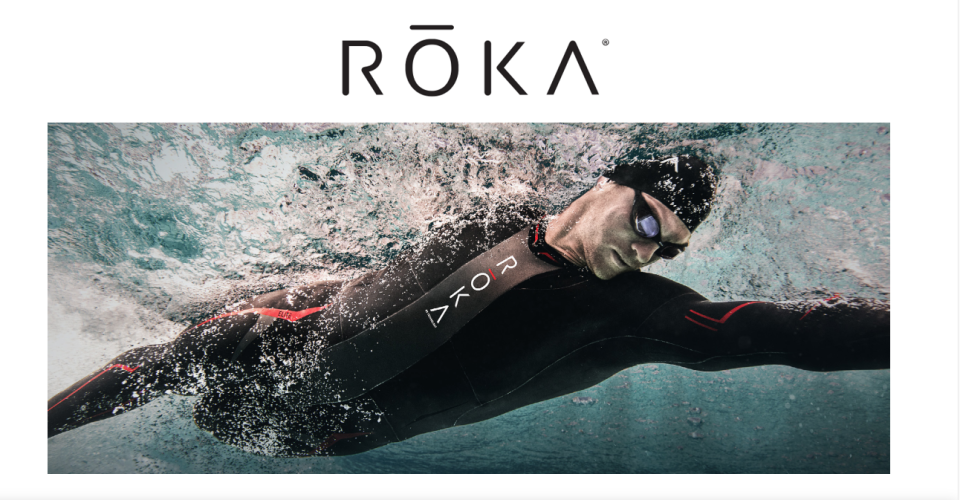Ironman Merchandise Proves Hot Seller for Partner Brands
- Oops!Something went wrong.Please try again later.

Swim 2.4 miles. Bike 112 miles. Run 26.2 miles. Brag for the rest of your life.
That’s the trademark of the Ironman triathlon, an endurance race that dates to 1978 when Judy and John Collins came up with the idea of staging a race on Oahu that would determine who was the most fit — a swimmer, cyclist or runner — by having them compete on a course that encompassed the Waikiki Roughwater Swim, the Around Oahu Bike Race and the Honolulu Marathon, all in one day. The first race drew 15 men, 12 of whom finished, with Gordon Haller, a U.S. Navy communications specialist, completing the course in 11:46:58.
More from WWD
Since then the Ironman, which was purchased by Advance Publications last year for $730 million, has become a leading test of endurance, drawing thousands of participants each year to 170-plus events in more than 55 countries. The athletes who race the Ironman — and its sibling, the half-Ironman 70.3 — are rabid about the sport and eager to boast about their accomplishment.
The merchandise tent at every race site is filled with participants lined up to buy the official race gear and everything else sporting an Ironman logo, whether it’s a dog leash, truck hitch or holiday ornament. But it’s the apparel and footwear from the race’s official partners such as Hoka, Roka, Lululemon and Santini that account for the majority of the business.
Still, the sport faces challenges as other endurance activities — like ultra-marathon races — gain in popularity. According to a report by the Sports & Fitness Industry Association, participation in road triathlons of all distances has been slipping for the past several years with a decline of 5.8 percent since 2016. Of those who have raced more than once a year, triathletes overall are 65 percent male and 35 percent female and around 40 percent of them report incomes of over $100,000 — making participants an attractive market for brands.
“One of the big perks of being a partner is they have exclusivity in the store,” said Jen Mocerino, chief merchandise officer for Ironman, which held its last U.S. race of the year Sunday, the Ironman Florida 70.3 in Haines City. Although races also have expos outside of the official merchandise tent, these booths are contracted for by brands seeking to attract well-heeled athletes and spectators and can include everything from bikes and compression boots to nutrition products. “But if you’re not an official partner, you can’t use the Ironman logo,” Mocerino said.

At each race there is core product that is not race specific along with merchandise specifically targeted to that event, the latter of which Mocerino said sells out on site. The most popular item in recent years has been the official T-shirt of the event, which includes the name of every athlete registered within the Ironman logo. It retails for $45. “It’s not just the athletes — the families want it, too,” she said.
In general, performance apparel drives the business, whether that’s bike shorts or triathlon kits from Santini or singlets from Hoka. The bolder the color the better, she said, so athletes can be seen on course and while training. But for those that prefer a more subtle look, the classic collection in white, black and red is offered.
Several of the partners have been sponsors for years, and the most successful ones have proven to be those focused on serving the triathlete community rather than looking for a quick hit and a way to attract some of those disposable income dollars.
“We started in 2015,” said Rob Canales, cofounder and chief executive officer of Roka. “At the time we were Ironman’s youngest corporate partner.” Kurt Spenser, cofounder and chief marketing officer, said that Roka started out as strictly a wetsuit manufacturer targeting triathletes and Ironman was “the 800-pound gorilla” in the sport, so aligning with the company was almost a necessity in order to make a mark.
Since that initial sponsorship, which covered North America and the World Championship race in Kona, Hawaii, Roka expanded its deal to become a global partner in 2018. This helped the brand reach triathletes around the world at a time when Roka had no plans to launch its own international operation.
Despite the fact that nearly all races were canceled last year because of the pandemic, the Roka team never considered stepping back from its commitment to Ironman and triathlon, even as its offering expanded into eyewear, apparel and googles. “It’s not like the sport is going away,” Canales said. Spencer added: “We see real value in supporting the triathlon community.”

Ditto for Hoka, which has been a sponsor since 2016. Mike McManus, director of global sports marketing, said triathletes were among the first to discover the footwear brand and soon became loyal to its highly cushioned shoes. “Triathletes tend to be early adopters,” he said. “Even though Hoka comes from a trail background and was invented for running up and down mountains, there’s a real synergy between the brand and triathletes. By the time they get through the swim, which is an hour-plus, then bike five, six or seven hours, they’re pretty broken and they still have to run 26.2 miles. They’re looking for whatever can protect their feet. This is a bucket list race for so many people and we found it really beneficial to the brand when Hoka was tiny.”
Like Roka, Hoka, which is no longer tiny, has also expanded its relationship with Ironman beyond North American and Kona to become an international partner. Its apparel is also offered, along with its footwear.
“A lot of other brands have rolled through and have been sponsors for one or two years, but we’re going on year six and we’re committed to continuing with Ironman and helping the athlete achieve their highest goal. It’s been a real win-win for Hoka, the triathletes and Ironman,” he said.
Although Hoka and Roka have been Ironman partners for years, Lululemon — whose CEO Calvin McDonald is an avid Ironman triathlete — signed on around a year ago. The brand offers Ts, joggers, tights and other athleisure products with the M-dot logo on the pieces.
Mocerino said the Lululemon line has been popular with athletes looking for comfortable pieces that can be worn for both working out and for working from home.
“Our goal is to find the brands that athletes love,” she said. “We are extremely focused on the athletes and getting them the product they need for their training and their race. We want them to come to us and find everything they need.”
Sign up for WWD's Newsletter. For the latest news, follow us on Twitter, Facebook, and Instagram.

